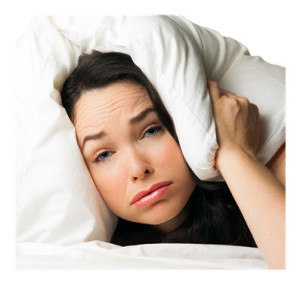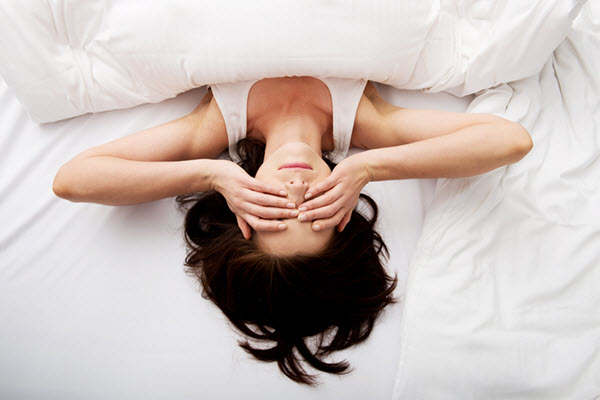Sleep deprivation… How do I NOT love thee… Oh, let me count the ways!
 It may be a crisp, sunny morning outside – cause for a good mood – yet all I can say is… If only I were sleeping.
It may be a crisp, sunny morning outside – cause for a good mood – yet all I can say is… If only I were sleeping.
Inside, I am witness to the recent storm: remnants of a day that began before dawn and ended after midnight, the 24-hour period that preceded it (only slightly less hectic), the day before that, very much the same…
I repeat: If only I were sleeping.
Overscheduled, Under-Rested
Today?
Heavy lids, heavy legs, and already a desire to nibble my way through the pantry in order to keep going. I say that, even as I progress through four priority activities as evidenced by a list, a set of files, and notes beside my laptop.
Naturally, there is good news and bad news.
The good news? In many respects, all systems go! My tasks are interesting and varied. The bad news? All systems slow. Eventually, sleep deprivation catches up.
Sure, my brain is firing, my fingers are flying across the keyboard, and I’m making my way through my most critical “must-do” items first. But I can feel fatigue attacking my edges. Rest is a requirement to feel well, and also, to produce our best work.
The challenges: When saying “no” isn’t an option, or doesn’t feel as if it is; constantly shuffling priorities, when there isn’t enough of you to go around; when little to no sleep becomes your new “normal.”
What Happens to the Body When You Don’t Get Enough Sleep?
I decided to look up what happens to the body on insufficient sleep. Most of us already know – at least, generally – that sleep is vital and we don’t get enough. But as the saying goes, a picture is worth a thousand words, and this is one you don’t want to miss. Mind Body Green offers an infographic that plainly reflects that we “lose our minds and our health” when we deny our bodies sleep.
Most of us are familiar with the impacts of short-term sleep loss, including increased appetite, memory issues, greater likelihood of accidents, and a short fuse. It’s one thing to drag around, be a little hazy, and respond more emotionally. But what about the associations between chronic sleep deprivation and serious matters of health?
Among the repercussions of chronic sleep deprivation illustrated on the infographic:
… obesity risk jumps… diabetes risk goes up… stroke risk quadruples… risk of some cancers may increase…
I am familiar with the short-term impacts, which are none too pleasant. But the longer term damage I just cited? Very frightening.
Why Don’t We Sleep?
Naturally, I have my reasons for not getting enough sleep. I’m sure you do, too. Those of us who are freelancers or independents may find that a roller coaster schedule becomes our “normal.” Since there are lulls, we load up when there are opportunities. It’s about paying the bills, right?
 For new parents, sleep often disappears for weeks, even months, and occasionally (if you have babies close in age) – for years.
For new parents, sleep often disappears for weeks, even months, and occasionally (if you have babies close in age) – for years.
Been there, done that. Say au revoir to your zzzzs.
Health conditions can, excuse the pun… kick in. Restless Legs may be just one you’ve heard of, leaving you a challenged sleeper.
Do We Sleep Less As We Age?
Of course, we are under the misconception that we don’t need as much sleep as we get older. According to the National Sleep Foundation, that isn’t true, though we do have more difficulty sleeping as we age.
… As people age they tend to have a harder time falling asleep and more trouble staying asleep than when they were younger. It is a common misconception that sleep needs decline with age. In fact, research demonstrates that our sleep needs remain constant throughout adulthood.
Whatever the reasons – physical, emotional, due to medications, due to more work than we can fit into a typical day – the bravado and denial don’t change the facts. We must – I must – move sleep up the priority list. This is true when I’m under tight deadlines, and equally so, when caught up in the momentum of a task. It’s about refusing to “lose our minds and our health.”
If At First You Don’t Succeed…
I am resolving to pay closer attention. And yes, I’ve been here before. If at first you don’t succeed, try try again, right?
Perhaps being more keenly aware of what is actually taking place inside my body will remind me that I need to honor this body in order to be around for as long as possible.
But why is it that some of us need to repeat this reminder time and time again? Is it truly the circumstances of our lives and livelihood? Is there something in who we are that makes us more drawn to taking on more, and less likely to feel ourselves in either rest or relaxation?

How do you get through intense periods of time when you are required to pull out all the stops? How do you manage a good night’s sleep when the checklists are churning in your head?
You May Also Enjoy
I have just the opposite problem – how do I stay awake when I have deadlines looming and tasks to accomplish? I, literally, can fall asleep sitting up at about 4 in the afternoon and again about 9 o’clock. sometimes getting up and moving around, stretching and drinking cold water helps. And it doesn’t matter what time I go to bed – I’m up at 5 or 5:30.
Is there really something to being a morning person or a night owl? We do seem to have certain rhythms.
Barbara, Right about now I would love to exchange problems! 🙂